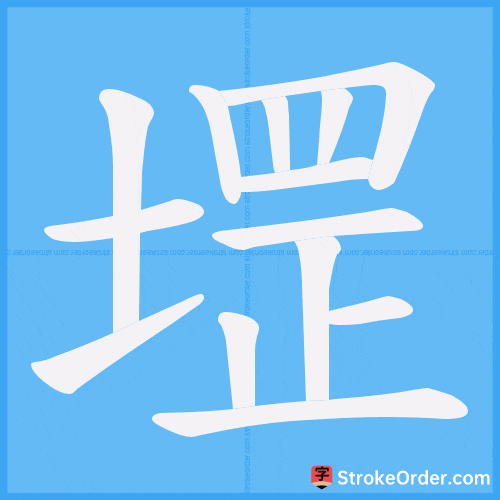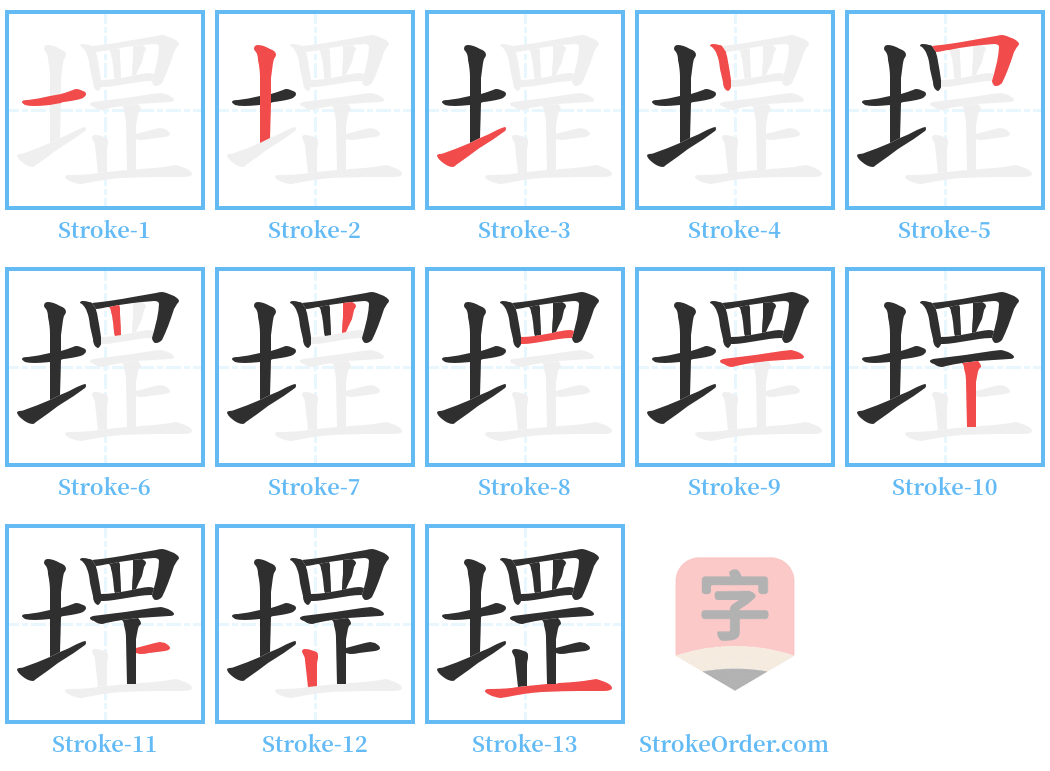堽 Stroke Order
Animated Stroke Order of 堽

Stroke Order Diagrams for 堽

Information of 堽
Pinyin
gāng
Radical
土
Strokes
13 strokes
Usage
★★
Definition
堽
[Pinyin: gāng]
Part of Speech: Noun
1. 同“冈”。山脊 (English: ridge)
同“冈”。山脊。《广韵•唐韵》:“冈,又作堽。”
(Translation: Same as "冈". Mountain ridge. "Guangyun • Tangyun": "冈, also written as 堽.")
2. 同“缸”。大瓮 (English: large jar)
同“缸”。大瓮。《太平御览》卷七百四十二引《荀氏灵鬼志》:“家人悉行,妇独守家;见屋中一大堽,试发,见一大蛇,便作沸汤,悉灌杀之。”
(Translation: Same as "缸". Large jar. "Taiping Yulan", Volume 742 cites "Xun Shi Ling Gui Zhi": "All family members left, and only the wife stayed at home; she saw a large 堽 in the house, tried to open it, and saw a big snake, then made boiling water and poured it in to kill it.")
引 (Contextual Reference)
1. 宋·佚名《新编五代史平话》:前临剪径道,背靠杀人堽。
(Translation: Song Dynasty, Anonymous, "Newly Compiled Narrative of the Five Dynasties": "In front is a path cut through the grass, backed by a 堽 where people were killed.")
2. 堤坝 (English: dam)
【例】如:堽身(堤坝)
(Translation: For example: 堽身 (dam))